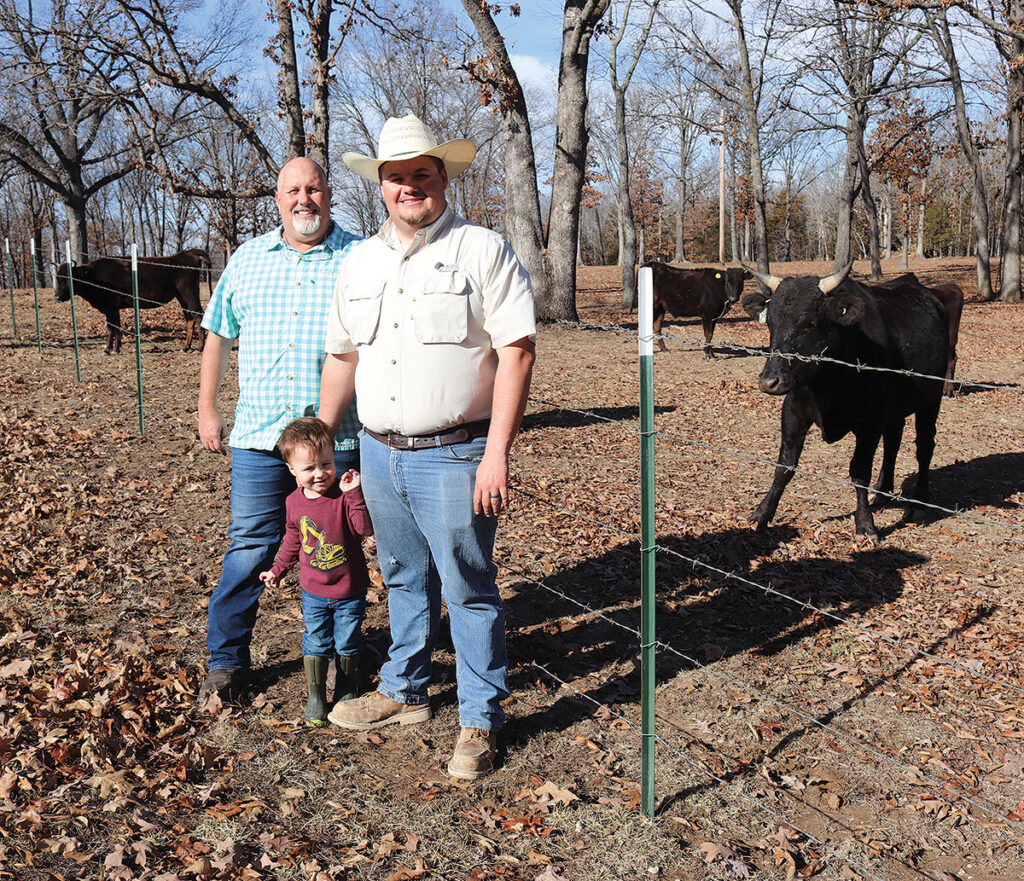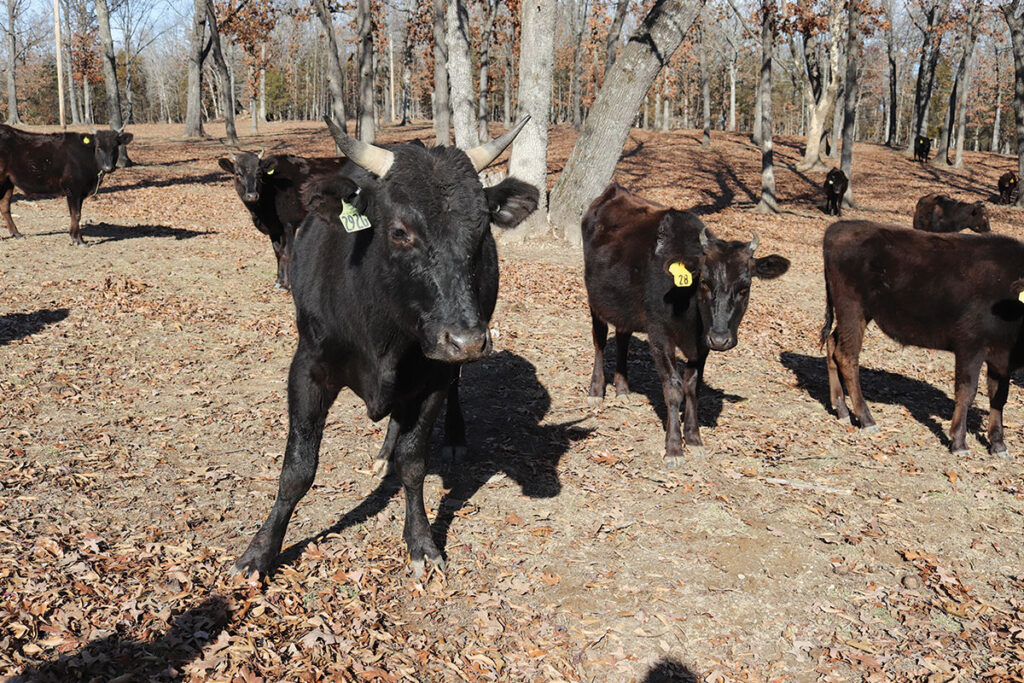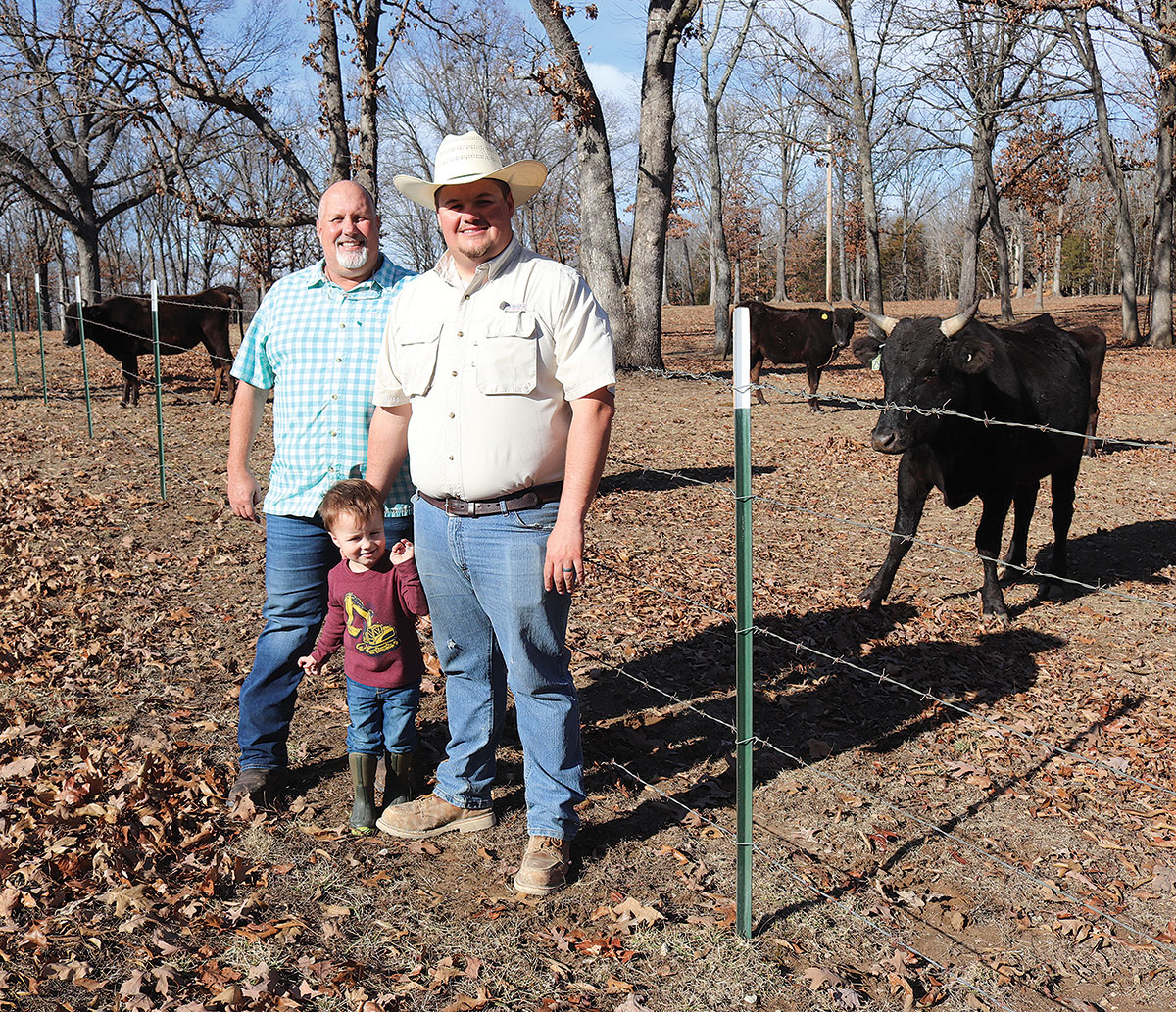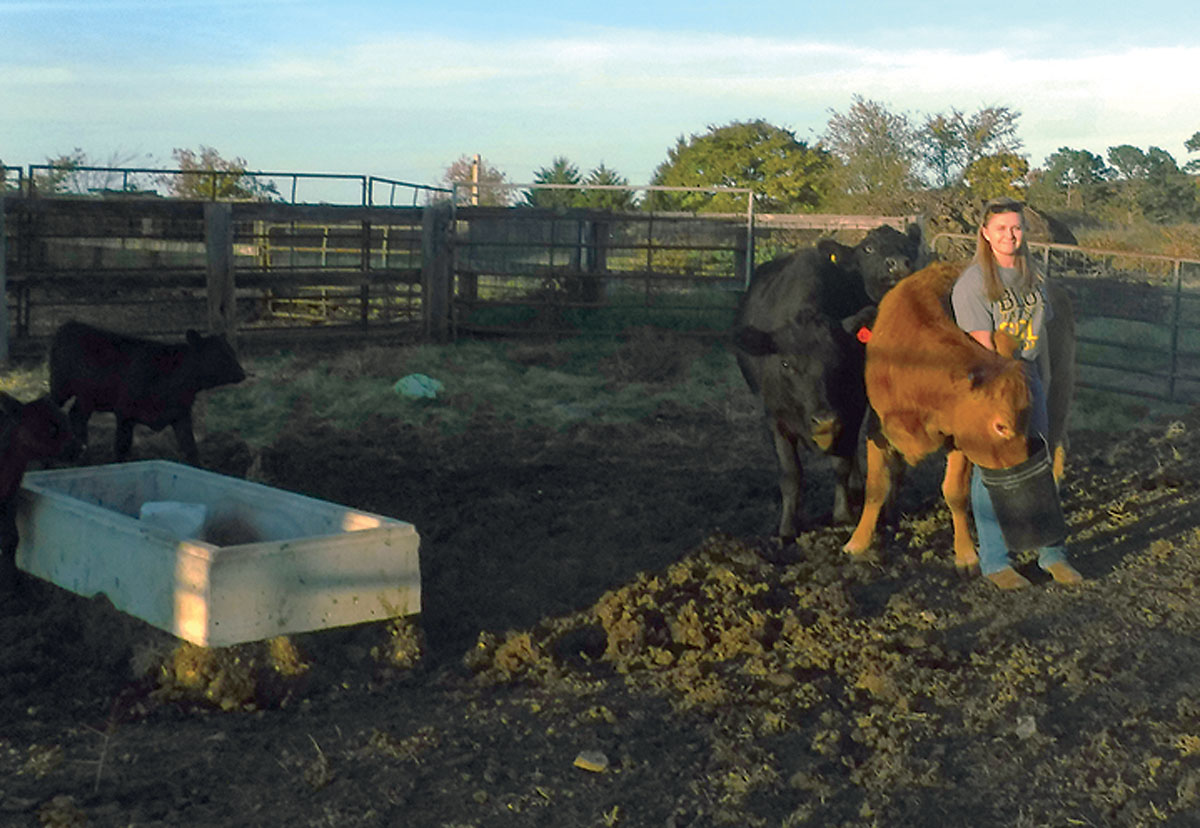
Buttry Cattle offers farm raised Wagyu to its customers
HALFWAY, MO. – Brian and Shelli Buttry ordered a pricy steak at a Texas restaurant a few years ago.
They were impressed with the buttery texture and the rich flavor of the steak and thought they might be able to raise the same quality beef.
“Wagyu was big in Texas at the time,” Brian said. “We got the bright idea that instead of paying all this money for these steaks, why don’t we get into raising a few? It started as a legacy thing for the kids.”
They began researching the Wagyu breed and found Justin Baker at JB Kobe Farms in Nixa, Mo.
The Buttry family bought what Brian described as a “starter pack” of six black Wagyu from Justin and began raising the Japanese breed on their farm near Halfway, Mo.
Brian, Shelli, and their sons, Cole and Zac, split their time between Missouri and Texas, where they own TE Construction Group, LLC. However, starting an operation in Texas wasn’t ideal, so they opted to use the 80-acre property they have owned since 1991.
“We were just flipping mostly Angus steers until they got to about 800 pounds,” Brian said of the previous cattle operation. “Before that, we didn’t have much experience with cattle other than working on farms when we were kids. Our son, Cole, worked on a dairy farm when he was in school, and my dad was a pig farmer, but we didn’t have much cow experience.
“We also wanted to keep our cattle here in Missouri because this has always been the family farm. Shelli’s mom and dad had it first, then we took over, so it’s part of the legacy we want for the kids. We talked about buying a place in Texas and moving the herd, but this place has always been special to us.”
Buttry Cattle Co. launched beef sales in March 2023, shipping beef around the country, but most of the sales are to consumers in the Ozarks. Brian and Shelli’s daughter Taylor and her husband Austin handle the farm’s day-to-day operations. Taylor also owns an IV therapy spa, The Drip Spa.
Building on the first six animals, the Buttry herd has grown to about 40 head.
“For Wagyu, it takes 36 months for them to be ready to be butchered, so you are in it for the long haul,” Brian said. “When they get to 1,500 to 1,600 pounds, they are ready. When we finish one, it’s 400 days of full feed.”
Steers receive a 16 percent, locally-sourced sweet feed. Brian said they begin offering each steer 5 pounds of feed daily, then gradually increase it.
“We separate the steers and watch how they eat,” Brian said. “If they eat 10 pounds a day, we will increase it to 12, 13 pounds. We put as much feed in front of him as he wants until it’s time to butcher.
“Full feed is the Japanese way. If you’re going to get into the Wagyu business, you have to follow the Wagyu way and the American Wagyu Association. You provide them with good grass, then before you process, you feed them for 400 days. That gives them that marbling in the meat. It’s not like flipping steers. You have to sink in a bunch of money, and it will be three years before you get any money back.”
Buttry Cattle Co. administers no growth hormones, antibiotics or vaccinations.
“It’s all pretty much natural,” Brian said, adding that animals get protein tubs and are dewormed. “We’ve found some people don’t want animals that are vaccinated. We have a closed herd and are tucked out here by ourselves.”
Hay offered to the herd is primarily produced on the farm, but if the need arises for additional hay, the Buttrys will source it locally.
“Just good old fescue hay and sweet feed do amazing for these cattle,” Brian said. “We started with cattle that were raised in the Ozarks, so that’s what they are used to.”
The Buttrys began using Wagyu bulls with commercial females to get their beef operation off the ground.
“We wanted to get some cash flow going,” Brian said. “We thought about it and decided we didn’t want to be a big conglomeration of beef; we wanted to be purebred Wagyu.”
The couple’s son, Cody, added that with purebred Wagyu, they do not have to try to breed multiple generations to obtain the quality of beef they seek.
“We want to stay 100 percent true Wagyu and not mix it,” he said.
Brian added that cattle only have to be 33 percent Wagyu to be advertised as Wagyu.
“That’s what separates us,” Brian said. “We want to stay at 100 percent.”
DNA samples are taken from calves born on the farm and sent to the American Wagyu Association to ensure each animal is purebred Wagyu.
“It’s a whole process,” Shelli said. “You really have to keep on top of it.”
In addition to beef sales, the family hopes to one day become Wagyu seedstock providers. They rented one of their bulls to a fellow producer, who then purchased that bull for his herd.

Because they cater to the beef market, the herd needs to produce as many calves as possible.
“We are running a bull all the time because we need those calves to be coming all year,” Brian said. “We have to drop a certain amount of bulls that we steer to keep up with demand. The four I had drop this week will be beef in three years. We had close to 2,000 pounds processed last year and sold out.”
Buttry Cattle Co. plans to start an AI program and utilize sexed semen to produce the calves for the beef program.
“We want to change up some genetics, but we don’t want to sell $1,000 steaks,” Brian said. “We want to produce beef people can afford to eat. We are happy with middle-of-the-road genetics and aren’t interested in selling embryos and such.”
“It’s all about keeping it affordable,” Shelli added. “If you get into buying a lot of semen and embryos, your costs go up, and so does the cost of your meat.”
To reduce production costs, the family retains all heifers.
“They are more valuable to us as future mommas,” Shelli said.
Brian said heifers are bred at 2 years because they are slow maturing, but the breed has excellent longevity.
“They can calve until they are 16 years old,” he said. “They also have no calving issues.”
Brian added that cows wean the calves in the pasture, reducing stress on the dam and calf.
Wagyu might be top-shelf beef, but it still comes down to proper preparation.
“You can’t cook it like a regular steak,” Brian said.
Cole developed the Buttry Cattle Co. Seasoning and Buttry Cattle Co. Salt and Pepper.
“In Texas, they are big on just salt and pepper,” Cole, a self-proclaimed “barbecue guy,” explained. “We found a special peppercorn called Tellicherry. It has a sweeter flavor, and we have the spice of peppercorn. We also use some sea salt. Instead of using seasoning salt and garlic, the steak has such quality that you just need salt and pepper. A lot of research was done, and I wanted to replicate some of the things I had at restaurants.”
The family offers prepreation tips on the Buttry Cattle Co. website.
Wagyu is a niche market but a growing market in the Ozarks.
“Justin has a herd of 200 and has been selling cattle for 20 years, and he’s selling starter packs,” Brian said, adding that he is seeing long-time cattle producers converting to or adding Wagyu genetics to their herd. “For us, it’s not to make millions. We like the breed, and we really like the meat.”
The Buttrys would like to get their beef into restaurants and grow their herd, but it can’t be rushed, just like Wagyu beef.
“You have to get everything in line, but we just aren’t big enough,” Brian said. “If we want to get bigger and stay in the Wagyu business, either me or one of the boys would have to come home and take care of it full time. Right now, we are enjoying raising them, processing a few, selling beef and giving the family beef,” Brian said. “If we get too big, we would have to have more land. We are just enjoying it and making it a family thing. I wish we would have gotten into it when our kids were younger and grown into it.”







